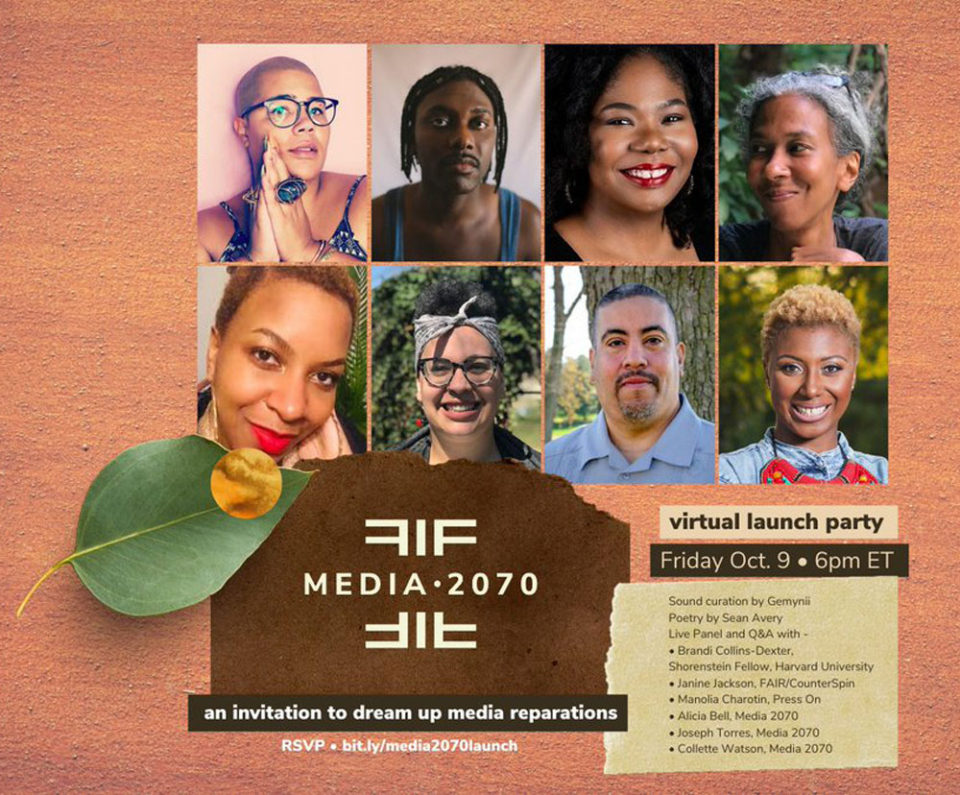Group Wants Abuses to Figure in Reparations
Les Payne’s Malcolm X Bio Is ‘Masterful’
‘Africa’ Quip: Firing Offense or Just Cringeworthy?
Lee Returning to Boston in Masthead Job
. . . Where Is The Athletic on Diversity Now?
Hannah-Jones Shouts Out Slave Progeny
3 Dozen at New York’s WNET Want CEO Out
DuVernay to Make Film of Wilkerson’s ‘Caste’
Passings: Earl D. Harvey, Vaughn McClure, Joe Morgan, Monica Roberts
Boston Globe Gives Black Businesses Free Ads
Short Takes
Support Journal-ismsFree Press’ Media 2070 presented a panel discussion, “The Critical Need for Media Reparations” over the summer. Participating were Janine Jackson of Fairness & Accuracy In Reporting’s “CounterSpin,” Manolia Charotin of Press On and Brandi Collins-Dexter, a Joan Shorenstein Fellow at Harvard University. (Credit: YouTube)
Group Wants Abuses to Figure in Reparations
Most of us can cite examples of the news media’s complicity in — and encouragement of — the nation’s racism, from the treatment of the Central Park Five to Southern newspapers’ roles as pillars of the Jim Crow South, to the cases that fed the recent multi-article confession by the Los Angeles Times.
But few have attempted to catalog the examples, and fewer still have issued calls to do something about that past. Nor have they tied it to the reparations movement.
Now comes Free Press, a Washington-based activist group on media issues best known for taking on such topics as media consolidation and net neutrality.
Free Press has released a 100-page essay, “Media 2070: An Invitation to Dream Up Media Reparations,” calling for “a national reckoning on the history of systemic racism in U.S. media.
“With the nation witnessing 2020 newsroom revolts at the Los Angeles Times, New York Times, Philadelphia Inquirer and beyond, the question is as urgent as ever: What has been the media’s role in racial oppression, and how can news outlets make amends and repair the harms they’ve inflicted? Media 2070 offers a meaningful path forward,” the group announced this month.
“In the coming year, Free Press will gather in coalition with Black journalists, media-makers, artists, activists, technologists, organizations, scholars and community story-keepers to organize a series of events and actions that incorporate media into larger movements for racial and economic justice.”

The group also says, “The essay, created by Free Press staffers Alicia Bell, Joseph Torres, Collette Watson, Tauhid Chappell, Diamond Hardiman and Christina Pierce, reveals the critical role that trafficking of enslaved Africans played in making our nation’s earliest media financially viable. The piece traces this history to the present day, when deregulation has resulted in very few Black owners of traditional media, and racist algorithms amplify the voices of white supremacists across online platforms like Facebook, Twitter and YouTube.”
The piece opens with some examples not well-known to most of us:
- In 1704, “The Boston News-Letter, the nation’s first continuously published newspaper, is the first paper involved in the slave trade: It runs a slave ad less than a month after its founding. The ad, from a local merchant, seeks a purchaser of ‘two Negro men’ and a ‘Negro Woman & Child.’ The paper’s publisher, John Campbell, acts as a broker.”
- In 1898, “In North Carolina, the white-supremacist publisher and editor of Raleigh’s News & Observer, Josephus Daniels, helps lead a coup that overthrows Wilmington’s multiracial government — the only armed overthrow of a local government in the nation’s history.
- In 1917, “After a white policeman attacks a Black woman in Houston, a riot that kills at least 15 people ensues. A Black newspaper, The San Antonio Inquirer, publishes a letter from a woman who praises Black soldiers involved. The government arrests G.W. Bouldin, the paper’s editor, and charges him with espionage. He spends about a year incarcerated.”
- The list goes up to contemporary times. “2017. A Color Of Change and Family Story study finds that Black families represent 59 percent of stories about poverty in news and opinion outlets like CNN and Fox News — even though they make up just 27 percent of poor families in the country.”
Where do journalists and other media watchers come in? Torres, one of the organizers, told Journal-isms that they can help answer the question, “How do we tell a more complete story of history?” That accounting would include not only media but their allies in the government. What is the cost, for example, of African Americans being shut out when broadcast licenses were handed out during the 20th century?
 As David Honig (pictured) testified in 2018 before the Federal Communications Commission on behalf of his Multicultural Media, Telecom and Internet Council (MMTC):
As David Honig (pictured) testified in 2018 before the Federal Communications Commission on behalf of his Multicultural Media, Telecom and Internet Council (MMTC):
It “is no accident that 88 years after the FCC’s birth, when 38.7% of Americans are persons of color, minority television ownership stands at 2.6% and is dropping fast, and minority radio ownership is stagnant at about 5% . . . . the FCC, for five decades, openly, deliberately, and shamefully discriminated against minority broadcasters, making it virtually impossible for them to obtain access to publicly owned broadcast spectrum.
“People of color were never lacking in the business acumen, creative capacity or educational attainments required for broadcast stewardship. In the mid-1950s, it was no more difficult to
publish a newspaper than to operate a radio station.
“Yet, by 1950, minorities owned zero radio stations but had owned, at various time intervals since the early 19th Century, over 3,000 (mostly weekly and a few daily) newspapers, as well as several magazines. That feat was made possible by the fact that there was no ‘Federal Newspaper Commission’ acting as a gatekeeper to confer licenses on preferred customers and deny licenses to second-class citizens.”
- Share your story (scroll down)
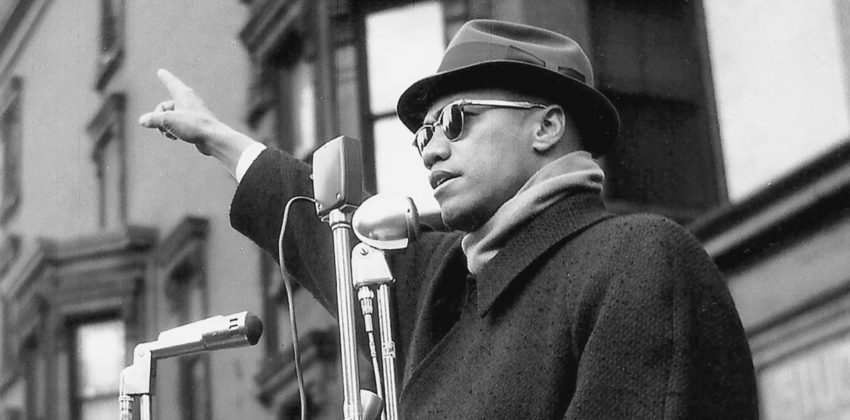
Les Payne’s Malcolm X Bio Is ‘Masterful’
When former Newsday editor and columnist Les Payne, a thought leader for journalists of all colors, died at 76 in 2018, the biography of Malcolm X that Payne had been researching since 1990 was still incomplete. His daughter, Tamara Payne, who was also his primary researcher, finished the book, which is being released Tuesday.
Variations of the word “masterful” appear in two of the first reviews of “The Dead Are Arising: The Life of Malcolm X,” which this month was named a finalist in the nonfiction category of the National Book Awards.
“Masterfully, he wove together the memories of friends, family, acquaintances, informants, and adversaries into a rich tapestry from which emerges the portrait of a complex individual working to make change in a society also full of contradictions,” Yohuru Williams wrote Thursday in The Boston Globe.
Tufts University professor Kerri Greenidge wrote in The Atlantic that the “textured attention to Black life and community, whether in Omaha or Boston, Atlanta or Accra distinguishes Les Payne’s masterful biography. . . .”
 “Payne (pictured) takes as a given that Malcolm was neither the propagator of hate that his critics claimed — a radical messiah manipulated by an extremist cult, as many Black leaders at the time considered him to be — nor the tragic transnational revolutionary assassinated before he could be fully redeemed. Rather, The Dead Are Arising is a meticulously researched, compassionately rendered, and fiercely analytical examination of the radical revolutionary as a human being.”
“Payne (pictured) takes as a given that Malcolm was neither the propagator of hate that his critics claimed — a radical messiah manipulated by an extremist cult, as many Black leaders at the time considered him to be — nor the tragic transnational revolutionary assassinated before he could be fully redeemed. Rather, The Dead Are Arising is a meticulously researched, compassionately rendered, and fiercely analytical examination of the radical revolutionary as a human being.”
Greenidge also wrote, “With new information gleaned from decades of research, Payne sheds fresh light on key moments in Malcolm’s political journey. He reassesses the racial traumas of Malcolm’s childhood, his disillusionment with Elijah Muhammad and the Nation of Islam, and the details of Malcolm’s 1965 assassination. In the process, Payne portrays the Black revolutionary as a flawed and ever-evolving man, and evokes the ambivalence toward revolutionary leaders that Black communities experience in their own time. . . .
“My grandmother passed in 2007, so she will never get to read The Dead Are Arising. But I think that she would appreciate the multiple interpretations that readers will likely have of Payne’s most damning revelation — that Malcolm’s assassination, authorized by the NOI, was tolerated by many in law enforcement, including the FBI. For Malcolm X scholars, and those who study government repression of Black radical movements during the ’60s and ’70s, this exposé (based on Payne’s interviews with many involved in the killing) will come as no surprise.
“But what is heartbreaking is the notion that, for all of his love for Black communities, for all of his radical sincerity — for all of the contexts from which he came, as my grandmother put it — Malcolm was still a man whose intelligence and passion enraged those, Black and white, who couldn’t control him. This reality is the reason that Payne’s description of the communities that Malcolm engaged with is so important: The Dead Are Arising forces us to ask deeper, more complicated questions about the Black people and places from which our heroes come.”
- Les Payne, The Atlantic: Beyond the Myth of Malcolm X (book excerpt)

‘Africa’ Quip: Firing Offense or Just Cringeworthy?
Anchor Brian Williams was discussing the distancing some Republicans were putting between themselves and President Trump on the MSNBC program he hosts, “The 11th Hour.”
“Is this the start of the great migration? Is this going to be like a family trip to Africa and everybody watch the walk back?,” (audio, 36:05) Williams said Oct. 12.
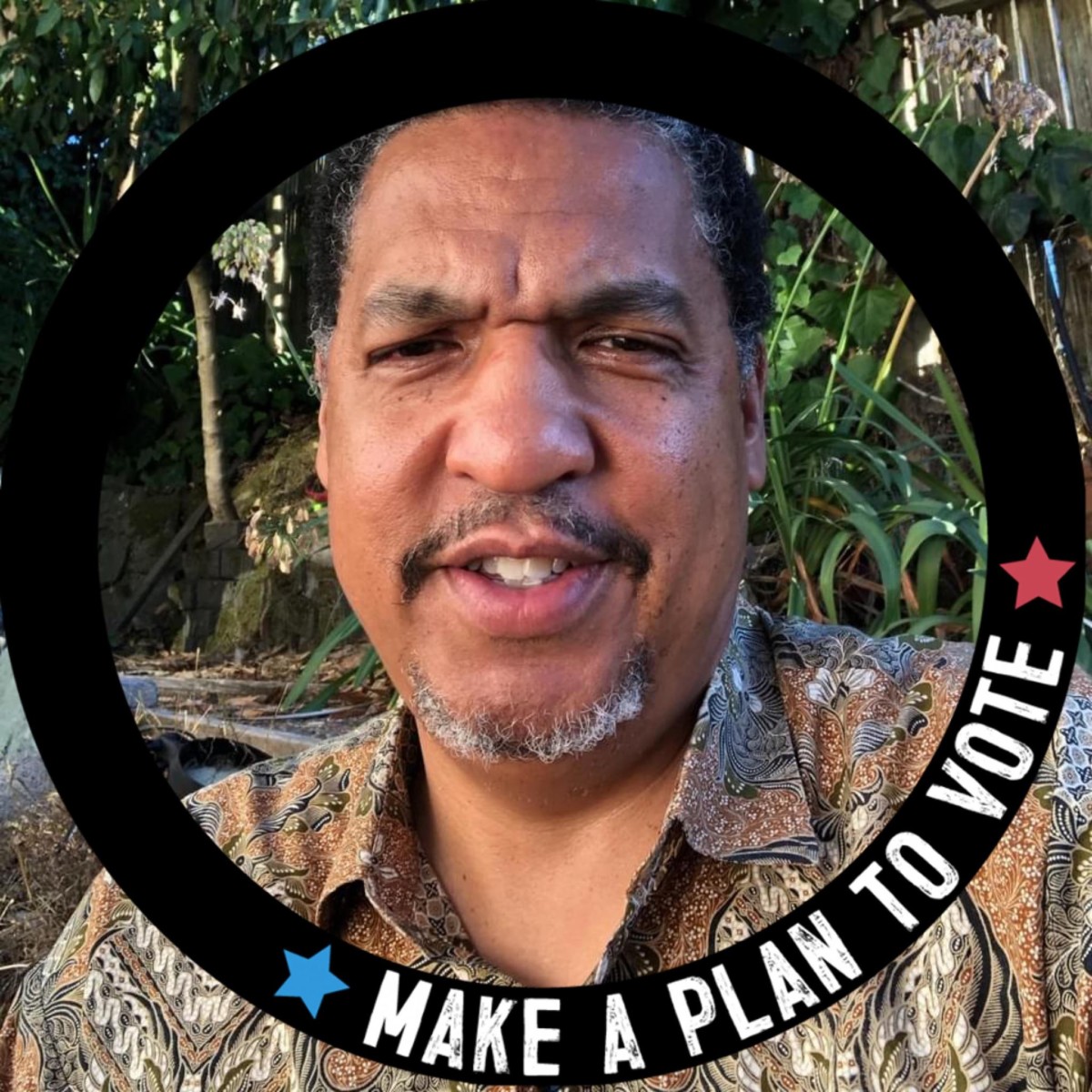 Sunni Khalid (pictured), a former NPR correspondent in Africa who married (and later divorced) an East African, was outraged. “More White privilege!” Khalid wrote on Facebook. “I took my family to Africa several times and none of us were backing away! An apology is not good enough! They need to fire him immediately!”
Sunni Khalid (pictured), a former NPR correspondent in Africa who married (and later divorced) an East African, was outraged. “More White privilege!” Khalid wrote on Facebook. “I took my family to Africa several times and none of us were backing away! An apology is not good enough! They need to fire him immediately!”
 Journal-isms asked Howard W. French (pictured), a former Africa correspondent for The New York Times and The Washington Post who has authored books about the continent and teaches at Columbia Journalism School.
Journal-isms asked Howard W. French (pictured), a former Africa correspondent for The New York Times and The Washington Post who has authored books about the continent and teaches at Columbia Journalism School.
“I happened to be watching when these comments were made.” French messaged. “I found them jarring and gratuitous, but ultimately not malicious or hateful. Williams often carries on like a certified wit with constant ad libs and dry jokes and it sometimes veers into the cringeworthy, as with this example.”
 Alison Bethel McKenzie (pictured), director of corps excellence for Report for America who has worked in 16 African countries as a trainer and press-freedom advocate, faulted Williams for not treating Africa as the collection of 54 countries that it is. “He says ‘Africa’ like it’s Georgia,” she said. “It’s more diverse than that. It’s ignorance and not well-informed.” McKenzie suggested substituting “Europe” for “Africa” to make her point.
Alison Bethel McKenzie (pictured), director of corps excellence for Report for America who has worked in 16 African countries as a trainer and press-freedom advocate, faulted Williams for not treating Africa as the collection of 54 countries that it is. “He says ‘Africa’ like it’s Georgia,” she said. “It’s more diverse than that. It’s ignorance and not well-informed.” McKenzie suggested substituting “Europe” for “Africa” to make her point.
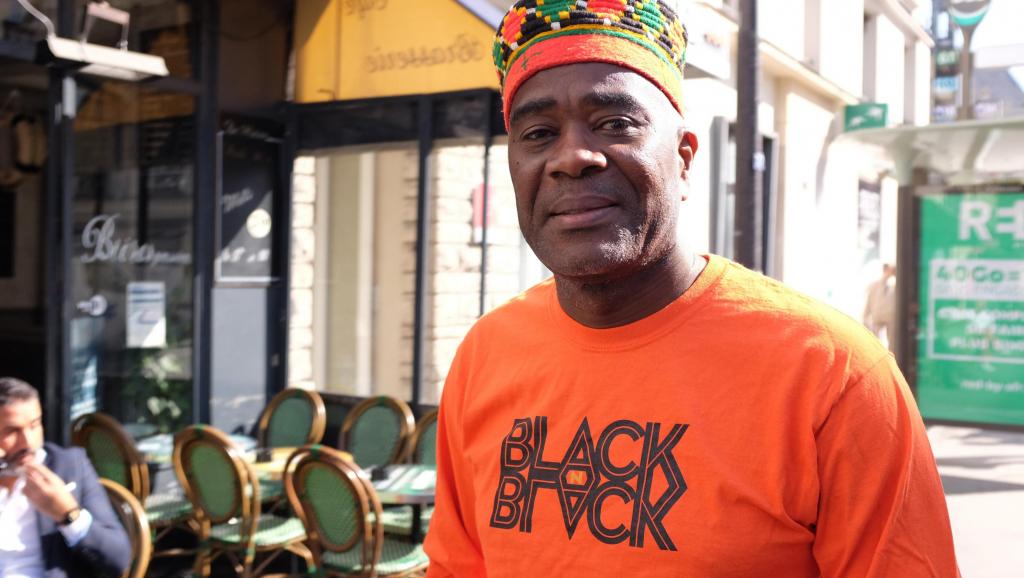 Zadi Zokou (pictured) is a native of Ivory Coast living in Massachusetts who has produced a documentary about how Africans and African Americans view each other (video).
Zadi Zokou (pictured) is a native of Ivory Coast living in Massachusetts who has produced a documentary about how Africans and African Americans view each other (video).
Zokou told Journal-isms he could not find the exact quote on the recording of the show. However, he said, “it would be ridiculous for Brian Williams to equate joining Trump and his craziness with going to Africa. I would even find it insulting, but not surprising, as stereotypes about Africa are hard to die, even with liberals. I just hope that he didn’t say that — or that I misinterpreted his words — as I have a profound respect for MSNBC.”
An MSNBC spokesman had no comment on Williams’ choice of words.
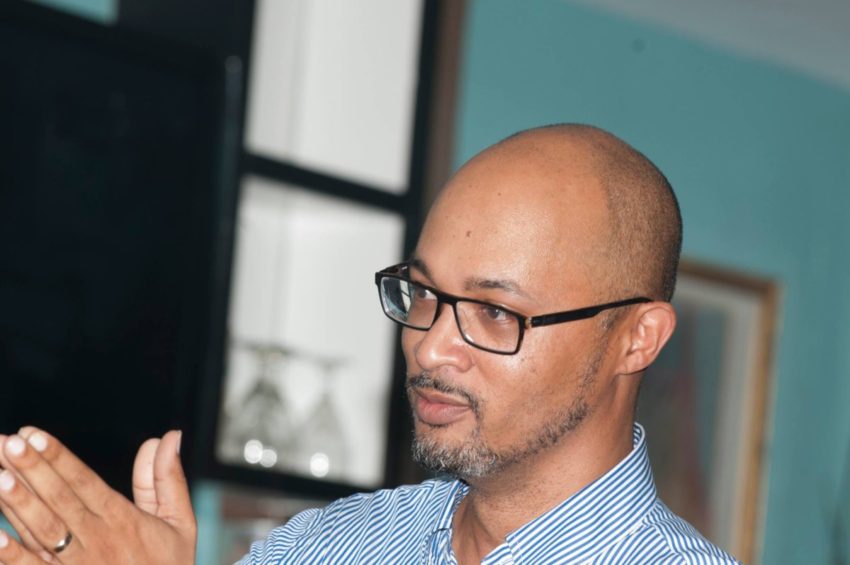
Lee Returning to Boston in Masthead Job
Veteran sports journalist Gregory H. Lee Jr., senior managing editor of The Athletic, is returning to The Boston Globe as senior assistant managing editor for talent and community, Globe Editor Brian McGrory announced on Wednesday.
Separately, The Athletic is also losing NBA writer Michael Lee (pictured below), who is returning to The Washington Post after a stint there from 2005 to 2015.
 Post sports editors Matt Vita, Matt Rennie and Joe Tone announced that Michael Lee will take a role with the publication’s sports enterprise team, Ian Casselberry reported Oct. 12 for Awful Announcing. “Rather than focus his coverage on the NBA and stories of a more immediate nature, Lee will cover a broader range of topics including sports’ role in society, along with race, gender, and diversity,” Casselberry wrote.
Post sports editors Matt Vita, Matt Rennie and Joe Tone announced that Michael Lee will take a role with the publication’s sports enterprise team, Ian Casselberry reported Oct. 12 for Awful Announcing. “Rather than focus his coverage on the NBA and stories of a more immediate nature, Lee will cover a broader range of topics including sports’ role in society, along with race, gender, and diversity,” Casselberry wrote.
The Globe’s McGrory said in a note to staffers, “Here we’re asking Greg to break the bounds of sports, which is something he will easily do. As senior AME for talent, he’ll lead our recruitment efforts, working with Paula Bouknight, in every part of the room. There’s nobody better equipped on the planet to do this, for a few reasons.
“First, Greg has a refined eye for the whole person, journalist and beyond. Second, he is both wise and generous in his ability to cultivate networks of rising stars and then help those journalists fulfill their potential. Third, Greg has a passion for diversity and an intuitive wisdom for all that it brings to an organization. Editors at the Globe have consulted with him regularly over the years whenever we have positions to fill.
“As senior AME for community, Greg will play a pivotal role in helping us build communities around our work, both to bring in new readers and strengthen the bonds with the hundreds of thousands of subscribers that we already have. He will help us form partnerships to expand our reach, will help devise and execute a strategy for improved coverage of specific topic areas and targeted geographic areas, and will be central in developing creative approaches to better connect readers with the Globe experience.”
Before joining the subscription-only Athletic in 2018, Lee was editorial director at NBA.com at Turner Sports and president of the National Association of Black Journalists. He had been publicly critical of The Athletic’s diversity efforts.
Before NBA.com, Lee was executive sports editor at the SunSentinel in Fort Lauderdale, McGrory noted. “He did a memorable 8-year stint as the Globe’s senior assistant sports editor, Joe Sullivan’s top deputy, ending in 2012. When we were checking references, I reached out to [Sports Editor] Matt Pepin to ask his impression of Greg. There was a gulf of silence wide enough that I wondered what response I was about to get. ‘I love Greg Lee,’ Matt emphatically said. Nobody in Sports should take this the wrong way, but I’ve never heard Matt say that about anyone before.”
Lee’s new position puts him on the Globe’s masthead. Mastheads have been expanding as news organizations participate in the racial reckoning accelerated by the Memorial Day police shooting of George Floyd. In August, McGrory promoted Anica Butler and Nestor Ramos to masthead positions at the newspaper, the first Black woman and the first Latino to be so elevated.
. . . Where Is The Athletic on Diversity Now?
When Greg Lee joined the Athletic (logo below) in 2018 after being critical of the organization’s diversity record, Lee said, “I never thought I’d be in this situation.”
 Now, he and Michael Lee are leaving just a few weeks after the site has promoted Lisa Wilson to editorial director and hired Tina Marie Sturdevant as talent, diversity and inclusion director. Both are journalists of color.
Now, he and Michael Lee are leaving just a few weeks after the site has promoted Lisa Wilson to editorial director and hired Tina Marie Sturdevant as talent, diversity and inclusion director. Both are journalists of color.
Here are three views of The Athletic’s current standing on diversity.
A. Sherrod Blakely, chair of the Sports Task Force of the National Association of Black Journalists, messaged Journal-isms, “While it’s certainly disappointing to see The Athletic lose two talented journalists such as Greg Lee and Mike Lee, it also affords the Athletic an opportunity to renew their commitment to diversity in a meaningful way by filling those two key positions with talented journalists of color.
“The Sports Task Force will aid them in whatever manner in which they want to be engaged in the process. In addition, the Sports Task Force wishes much success to Greg and Mike as they each return to two of the most storied legacy news organizations in the country, the Boston Globe and the Washington Post, respectively.”
 Marcus Thompson (pictured), The Athletic’s Bay Area columnist and its first Black journalist hire, messaged, “We as a company could have started this whole thing in a much better place. That is without question. But internally we challenged them to be better and do more. So far, they’ve been responsive
Marcus Thompson (pictured), The Athletic’s Bay Area columnist and its first Black journalist hire, messaged, “We as a company could have started this whole thing in a much better place. That is without question. But internally we challenged them to be better and do more. So far, they’ve been responsive
“For example, the people of color in our company wanted a more diverse leadership group. We’ve added Lisa Wilson, Tina Sturdevant and Khalid Salaam — a Black woman, a Filipino woman and a Black man — [to] the ranks of leadership. And there are open leadership positions still to be filled. Our company’s representation still can be improved. But the efforts from the founders and the presence of these new leaders in the fold give us some hope that the growth we need to make as a company can and will happen. We just can’t let up and we can’t be satisfied with a few moves.”
Taylor Patterson, The Athletic’s senior communications director, said, “While we have made tangible progress this year, we still have a lot of work to do on diversity and inclusion at The Athletic.
“This includes supporting and promoting existing diverse talent, helping build talent pipelines consisting of diverse voices, investing in personal and professional development to enhance the workplace culture for our existing employees, and bolstering the work being led by The Athletic Communities, the company’s newsroom advocacy groups. Leaders like Tina and Lisa, along with many others on our team, are vital as we make progress on this important work.”
Patterson did not provide a racial breakdown of the staff. However, he added that “we are grateful for Greg and Michael’s work on behalf of The Athletic, and look forward to their success as they take on exciting new roles at organizations we know have played meaningful roles in their careers.”
- Dilshad D. Ali; Melissa Bunni Elian; Manolia Charlotin, Sewell Chan; Cierra Hinton and Lewis Raven Wallace; Erika Dilday; S. Mitra Kalita; Rob King; Marc Lacey; Doug Mitchell; Ron Nixon, Nieman Reports: Thought Leaders in Journalism on How to Meet the Challenges of This Moment (Sept. 23)
- Jeremy Kahn, Fortune: Employer review site Glassdoor adds diversity and inclusion ranking (Sept. 30)
- Jonah Peretti, BuzzFeed: 2020 Update On Diversity At BuzzFeed (Oct. 8)
- George Pyle, Salt Lake Tribune: Journalism must also look inward to deal with racism (Oct. 3)
- Tracy Schuhmacher, Democrat and Chronicle, Rochester, N.Y.: ‘It is heavy. It is exhausting’. Black journalists feel ‘the weight’ during a tumultuous time (Oct. 2)
- Aldana Vales, International Journalists’ Network: The Washington Post is building a newsroom that looks like America (Oct. 1)
- Max Willens, Digiday: ‘A lot of listening’: A Q&A with Conde Nast’s first chief diversity and inclusion officer, Yashica Olden (Oct. 5)
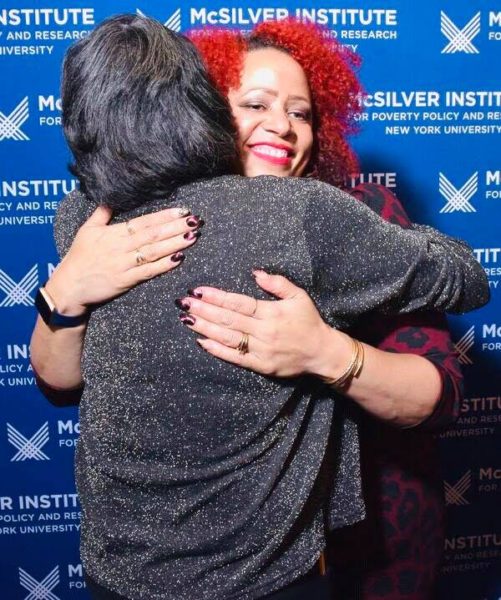
Hannah-Jones Shouts Out Slave Progeny
The New York Times’ Nikole Hannah-Jones on Wednesday accepted an award from New York University’s Arthur L. Carter Journalism Institute, which named the “1619 Project” she originated a top work of journalism over the past decade, Brian Stelter reported for his “Reliable Sources” newsletter for CNN.
“Hannah-Jones said in the virtual ceremony that she was accepting the award ‘on behalf of the 40 million descendants of American slavery.’ In a tweet she thanked the ‘passionate and principled team’ that produced the project. Hannah-Jones also alluded to recent controversy surrounding the project, writing that ‘in this week of all weeks’ the award was ‘a reminder of why we did this, who we did this for & that 1619 is now part of the nation’s lexicon.’ “
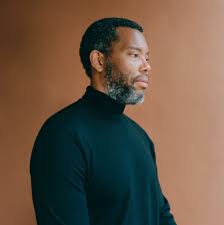 Writers of color and issues of most concern to them were well represented on the NYU list. Ta-Nehisi Coates’ (pictured) “The Case for Reparations,” a 2014 essay in The Atlantic “that crafted accounts from the century and a half after the end of slavery into a powerful argument that African Americans are owed compensation for their treatment in the United States,” was named the “Top Work of Journalism of the Decade.”
Writers of color and issues of most concern to them were well represented on the NYU list. Ta-Nehisi Coates’ (pictured) “The Case for Reparations,” a 2014 essay in The Atlantic “that crafted accounts from the century and a half after the end of slavery into a powerful argument that African Americans are owed compensation for their treatment in the United States,” was named the “Top Work of Journalism of the Decade.”
“Isabel Wilkerson’s The Warmth of Other Suns: The Epic Story of America’s Great Migration (No. 2), Jodi Kantor and Megan Twohey’s She Said: Breaking the Sexual Harassment Story That Helped Ignite a Movement (No. 3), Katherine Boo’s Behind the Beautiful Forevers (No. 4), and Michelle Alexander’s The New Jim Crow: Mass Incarceration in the Age of Colorblindness (No. 5) round out the first five selections of the ‘Top 10 Works of Journalism of the Decade,’ ” the school said.
In addition, The Washington Post staff was cited for its “Police shootings database 2015 to present.” “In the wake of Ferguson, newsrooms across the country took up admirable data reporting efforts to fill the longstanding gaps in existing federal data on police use of force. This project stands out both in its comprehensiveness and sustained dedication,” the school said.
Hannah-Jones’ mention of “this week of all weeks” was a reference to a controversy over the “1619 Project” that prompted statements from the Pulitzer Prizes, New York Times publisher A.G. Sulzberger and Times Editor Dean Baquet; a critical Times op-ed piece by conservative writer Bret Stephens, a since-deleted tweet blasting Stephens by the New York Times unit of the News Guild; a lengthy piece in the Intercept by Pulitzer Prize winner Glenn Greenwald questioning the Guild’s commitment to free speech; and another long piece by Sarah Ellison in The Washington Post headlined, “How the 1619 Project took over 2020.”
Then, on Friday, NYT Magazine editor Jake Silverstein posted a lengthy note online responding to critics, citing the NYU distinction, among others, and declaring, “The project that Hannah-Jones created is one of the most transformative works of journalism that The New York Times has ever published. It was not perfect; few things of any ambition ever are. But 14 months after its publication, its ‘core premises’ remain unshaken and indispensable.”
Greenwald wrote, “Despite its Pulitzer, the ‘1619 Project’ has become a hotly contested political and academic controversy, with the Trump administration seeking to block attempts to integrate its assertions into school curriculums, while numerous scholars of history accuse it of radically distorting historical fact, with some, such as Brown University’s Glenn Loury, calling on the Pulitzer Board to revoke its award. Scholars have also vocally criticized the Times for stealth edits of the article’s key claims long after publication, without even noting to readers that it made these substantive changes let alone explaining why it made them.”
Ellison wrote of the project, “at the nation’s most significant moment of racial reckoning since the 1960s, it’s become one of the hottest culture-war battlefields, where the combatants include turf-guarding academics, political ideologues angling for an election-year advantage — and the fearlessly spiky journalism superstar who willed the entire thing into existence.”
Ellison added, “Hannah-Jones has fiercely defended the 1619 Project. But today, she acknowledges that for all the experts she consulted, she should have sat down with additional scholars with particular focus on colonial history, the Revolutionary War and the Civil War, to better reflect the contention in the field.
“ ‘I should have been more careful with how I wrote that,’ she says, ‘because I don’t think that any other fact would have given people the fodder that this has, and I am tortured by it. I’m absolutely tortured by it.’ ”
- Afro-American Historical and Genealogical Society: Team 1619 @usatoday honored with Jean Sampson-Scott award. (video)
- Hailey Fuchs, New York Times: Trump Attack on Diversity Training Has a Quick and Chilling Effect

3 Dozen at New York’s WNET Want CEO Out
“More than three dozen employees at the WNET Group, the parent company of New York’s public television stations, have called for the resignation of the longtime chief executive, Neal Shapiro, saying he had not done enough to improve working conditions for employees, especially those of color,” Katie Robertson reported Oct. 12 for The New York Times.
“In an email to the staff on Friday, the Inclusion and Diversity Council, a WNET employee organization formed in 2015, said Mr. Shapiro did not have the ‘skills or the judgment to lead the company through this pivotal moment in history.’
“The council said that 41 current WNET employees and 34 former employees have signed the letter, which was posted on the council’s website. It did not publish the names of those who had signed. . . .
“Mr. Shapiro, a former president of NBC News who has led WNET since 2007, replied to the letter on Friday in an email to the staff, saying that ‘much of what has been written is inaccurate, misleading or out of context.’
“ ‘I understand some anonymous signatories are upset that we aren’t moving forward in the exact way they want,’ he wrote. ‘But make no mistake. The WNET Group is spending real resources, making real changes and building a path forward with accountability, transparency and civility.’
“Edgar Wachenheim III, an investment banker who has been the chairman of WNET’s board of trustees since 2017, said in a statement that Mr. Shapiro had the board’s support.”

DuVernay to Make Film of Wilkerson’s ‘Caste’
Oscar-nominated filmmaker Ava DuVernay plans to turn Isabel Wilkerson’s new book “Caste: The Origins of Our Discontents,” into a feature film for Netflix, Angelique Jackson reported Wednesday for Variety.
DuVernay plans to write, direct and produce the film adaptation, titled “Caste,” which “will use a multiple-story structure to examine the ‘unspoken system that has shaped America and chronicles how our lives today are defined by a hierarchy of human divisions dating back generations.’ “
Meanwhile, a spokeswoman for Oprah Winfrey told Journal-isms Thursday that the media mogul kept her pledge to buy 500 copies of the book to send to mayors, CEOs and college professors. The books went to governors, mayors of the top 100 cities by population, sports team owners, CEOs of top companies, and college and university presidents, at both Ivy League and historically Black colleges and universities, Chelsea Hettrick said.
 In August, Winfrey told CBS News’ Gayle King that “Caste” would be the latest pick for Oprah’s Book Club and that it “might be the most important book” she has ever chosen.
In August, Winfrey told CBS News’ Gayle King that “Caste” would be the latest pick for Oprah’s Book Club and that it “might be the most important book” she has ever chosen.
Reviewing the book in The New York Times, Dwight Garner wrote July 31, “This is a complicated book that does a simple thing. Wilkerson (pictured), who won a Pulitzer Prize for national reporting while at The New York Times and whose previous book, ‘The Warmth of Other Suns: The Epic Story of America’s Great Migration,’ won the National Book Critics Circle Award, avoids words like ‘white’ and ‘race’ and ‘racism’ in favor of terms like ‘dominant caste,’ ‘favored caste,’ ‘upper caste’ and ‘lower caste.’
“Some will quibble with her conflation of race and caste. (Social class is a separate matter, which Wilkerson addresses only rarely.) She does not argue that the words are synonyms. She argues that they ‘can and do coexist in the same culture and serve to reinforce each other. Race, in the United States, is the visible agent of the unseen force of caste. Caste is the bones, race the skin.’ . . .”
In an Oct. 11 appearance on C-SPAN’s “Q&A,” Wilkerson was asked what she thought would be the impact of Winfrey’s sending the book to public officials across the country.
“I do not know. I can only hope it will illuminate these truths to people who can actually be in a position to really do something about it. All of us have a role to play, but the more influence one has, the greater the responsibility and the greater the calling. I hope that all of this will come together to make this a better place for all of us,” she said.
Jackson wrote in Variety that the DuVernay project “is the latest in the line of collaborations between DuVernay and Netflix. In 2016, she helmed ’13th,’ a documentary focused on the history of racial injustice and mass incarceration in America. The film — titled after the 13th amendment, which abolished slavery — went on to garner BAFTA [British Academy of Film & Television Arts], Emmy, and Peabody awards, as well as earning DuVernay the distinction of becoming the first Black female director nominated for an Academy Award. DuVernay’s next Netflix project, 2019’s ‘When They See Us’ told the story of the ‘Exonerated Five.’ “
- Yashica Dutt, Foreign Policy: Feeling Like an Outcast: The bestselling book “Caste” brilliantly frames racial hierarchies in the United States but largely ignores the horrors of India’s caste structure. (Sept. 17)
Passings
Earl D. Harvey
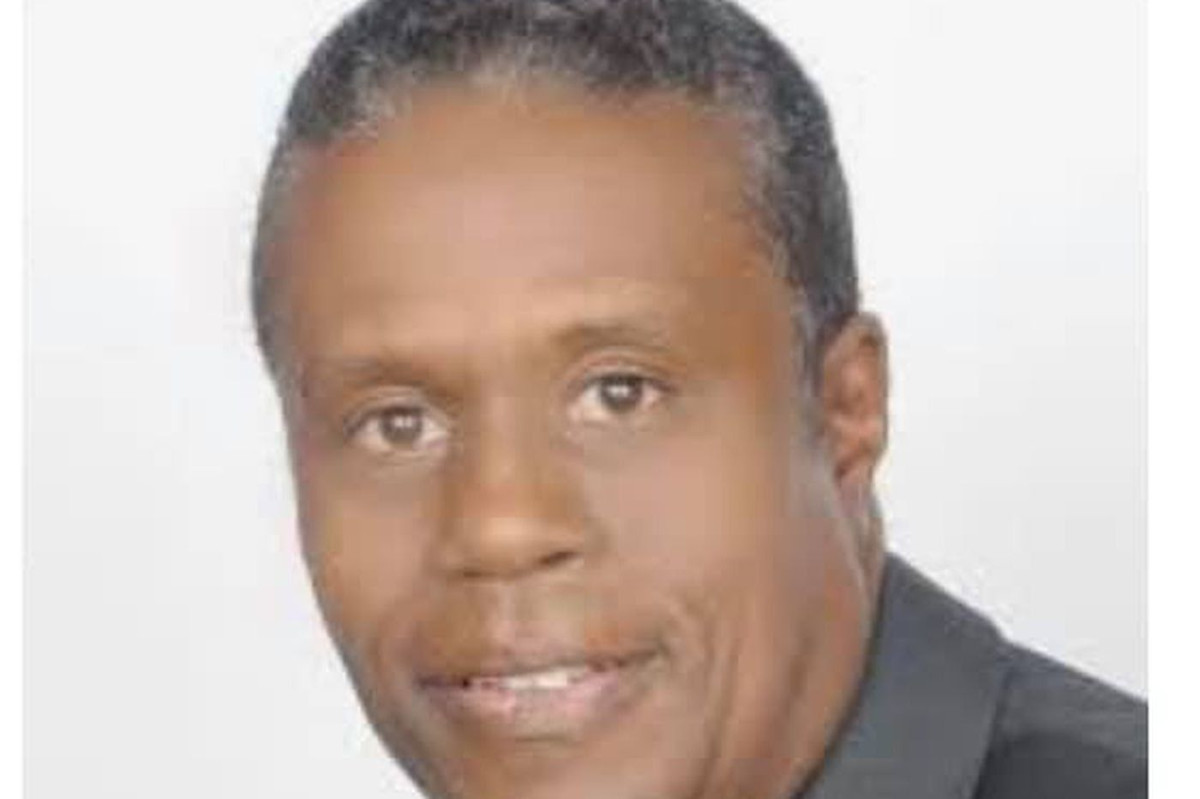 “Earl D. Harvey (pictured), 65, of Atlantic City, a marketing consultant, journalist, and supporter of Black-owned businesses, died Monday, Oct. 12, of a heart attack at Atlantic City Hospital, the Philadelphia Association of Black Journalists (PABJ) announced Wednesday.” Bonnie L. Cook reported for the Philadelphia Inquirer.
“Earl D. Harvey (pictured), 65, of Atlantic City, a marketing consultant, journalist, and supporter of Black-owned businesses, died Monday, Oct. 12, of a heart attack at Atlantic City Hospital, the Philadelphia Association of Black Journalists (PABJ) announced Wednesday.” Bonnie L. Cook reported for the Philadelphia Inquirer.
“He was the publisher of the Black Professionals News and the Atlantic City Times, small newspapers aimed at minority business owners in Philadelphia and South Jersey.
“Mr. Harvey was honored by the PABJ with 2014′s Community Service Award. The video tribute is at this link.”
Cook also reported, “When the coronavirus pandemic hit in March, Mr. Harvey ran the Black Business Leadership Council’s effort to help save the region’s small businesses, the Philadelphia Tribune reported.
“ ‘Earl reached out to [me] and other business leaders back in March and said we need to come together and develop strategies so that we could try to save as many Black businesses as possible,’ Joel Wilson, executive director of iBuyBlack Philadelphia, told the Tribune.”
Vaughn McClure
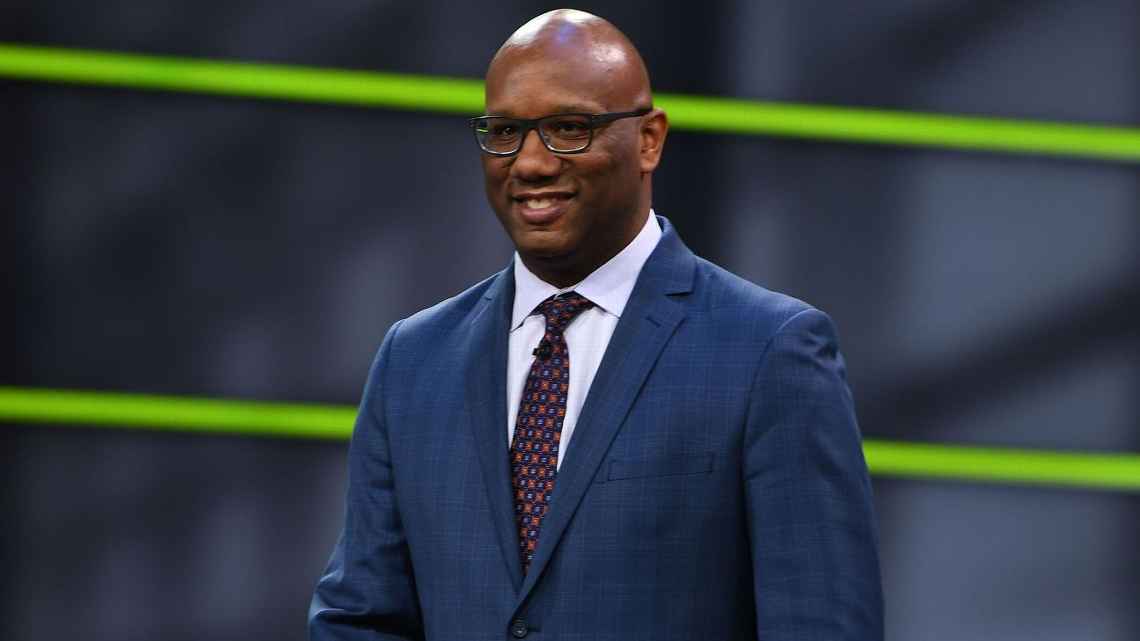 “Chicago sports media colleagues were stunned and saddened Thursday to learn of the death of ESPN reporter and former Chicago sportswriter Vaughn McClure (pictured). He was 48,” Robert Feder reported Friday in his Chicago media column.
“Chicago sports media colleagues were stunned and saddened Thursday to learn of the death of ESPN reporter and former Chicago sportswriter Vaughn McClure (pictured). He was 48,” Robert Feder reported Friday in his Chicago media column.
“McClure died at home in Atlanta, according to ESPN, where he covered the Atlanta Falcons for NFL Nation. No cause of death was released.
“The Chicago native and graduate of Northern Illinois University joined ESPN in 2013 after working for the Chicago Tribune as Chicago Bears beat writer. He also covered the Chicago Bulls in postseason.
“Earlier McClure covered Notre Dame football for the Sun-Times and Fresno State basketball for The Fresno Bee. He also worked at the South Bend Tribune and DeKalb Daily Chronicle.
“An outpouring of tributes to McClure from Chicago media personalities followed the announcement of his passing. . . .”
Joe Morgan
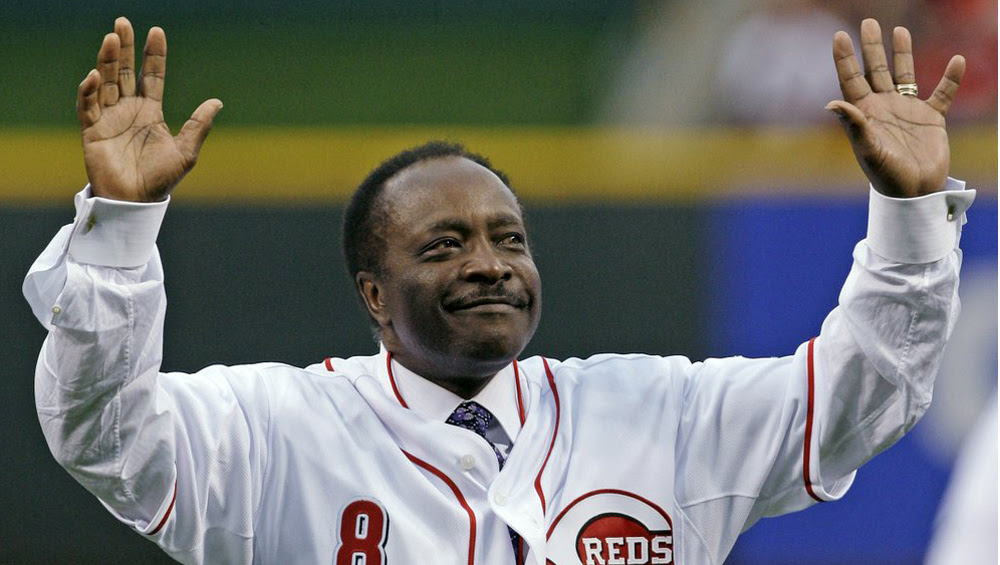 “Joe Morgan (pictured) the Hall of Fame second baseman who became the sparkplug of the Big Red Machine and the prototype for baseball’s artificial turf era, has died,” Joe Kay reported Oct. 12 for the Associated Press. “He was 77.
“Joe Morgan (pictured) the Hall of Fame second baseman who became the sparkplug of the Big Red Machine and the prototype for baseball’s artificial turf era, has died,” Joe Kay reported Oct. 12 for the Associated Press. “He was 77.
“He died at his home Sunday in Danville, California, family spokesman James Davis said in [a] statement Monday. Morgan was suffering from a nerve condition, a form of polyneuropathy.
“Morgan’s death marked the latest among major league greats this year: Whitey Ford, Bob Gibson, Lou Brock, Tom Seaver and Al Kaline. . . .
“After his playing career, he spent years as an announcer for the Reds, Giants and A’s, along with ESPN, NBC, ABC and CBS. He was on the board of the Hall of Fame and the Baseball Assistance Team.
Monica Roberts
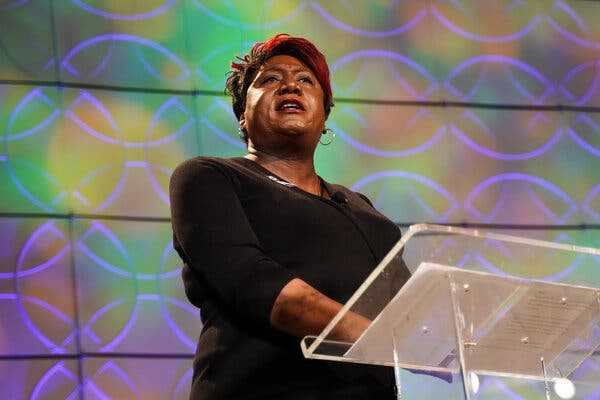 “Monica Roberts (pictured), a transgender advocate and journalist who chronicled the lives, and sometimes the deaths, of transgender people through her blog, TransGriot, died on Oct. 5 at her home in Houston,” Steven Kurutz reported Tuesday for The New York Times. “She was 58.
“Monica Roberts (pictured), a transgender advocate and journalist who chronicled the lives, and sometimes the deaths, of transgender people through her blog, TransGriot, died on Oct. 5 at her home in Houston,” Steven Kurutz reported Tuesday for The New York Times. “She was 58.
“Her mother, Mable Roberts, confirmed the death. She said that Ms. Roberts had complained of chest pains the day before her death and a medical examiner had found blood clots in her lungs.
“In the West African tradition, a griot is a storyteller, and Ms. Roberts set out to tell the stories and history and lived experiences of the transgender community. She started her blog in 2006, at a time when coverage of transgender issues by the mainstream media was limited and often deemed offensive by those being covered.
“ ‘A proud unapologetic Black trans woman speaking truth to power and discussing the world around her’ is how Ms. Roberts described her blog.
“On TransGriot, she celebrated Breanna Sinclairé, a transgender opera singer who performed the national anthem at baseball games, and wrote about Raquel Willis, the former executive editor of Out magazine. She covered issues surrounding transgender rights and, in a blog post one month before her death, expressed support for Mia Mason, a transgender woman who is running for Congress in Maryland’s First District against Andy Harris, the incumbent. In that article, Ms. Roberts offered a capsule history of the transgender community and the world of politics, compiling a list of every transgender person worldwide ever elected to serve in a national [legislature.]
“On other occasions, Ms. Roberts, a sports fan, gave her N.F.L. picks. . . .”
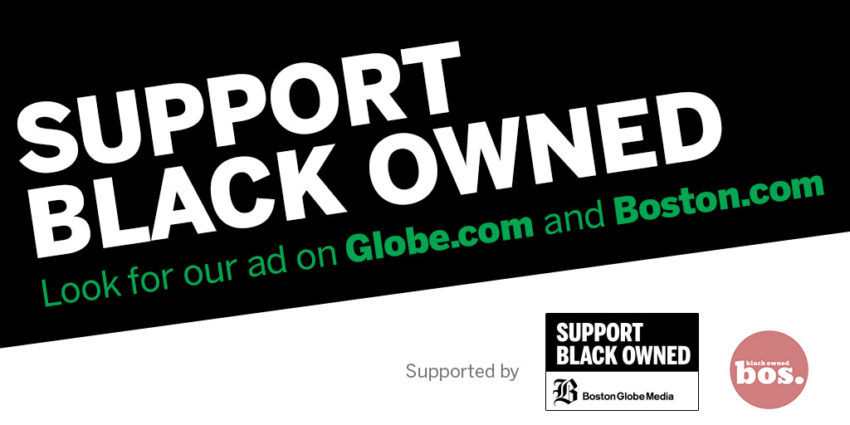
Boston Globe Gives Black Businesses Free Ads
Dozens of black-owned businesses have joined a “Support Black Owned” partnership with the Boston Globe since the program launched in July, a Globe spokesperson tells Journal-isms.
“Since launching on July 28th, we have had dozens of businesses sign up for the initiative,” Heidi Flood messaged Journal-isms Tuesday. “Applicants are selected 10 at a time — we then run complimentary ads for those 10 local Black owned businesses on Globe.com and Boston.com for a two-week period, rotating the group of 10 every two weeks.
“The selected companies are also promoted each week with a full page ad in the Boston Sunday Globe and in our weekly Globe Subscriber newsletter. Businesses provide their original ads to the Globe’s marketing team and during their two-week rotation, the ads receive 1M impressions. This initiative is intended to be ongoing and we look forward to welcoming new applicants to the program.”
Additional details and an application form can be found at globe.com/supportblackowned.
- Kristi Palma, Boston.com: Here’s a running list of Black-owned businesses to support in Greater Boston
Short Takes
- USA Today reporters explored how the policies of the past and present have made Black, Asian, Hispanic and Indigenous Americans prime targets for COVID-19. In their “Deadly Discrimination” series that debuted Thursday, they said, “Put simply, America’s history of racism was itself a preexisting condition.” The news organization said, “In a six-part series, USA TODAY investigates how racist policies of the past and present have fueled high COVID-19 deaths in communities of color.” Credited are journalists Alan Gomez, Wyatte Grantham-Philips, Trevor Hughes, Rick Jervis, Rebecca Plevin, Kameel Stanley, Dennis Wagner, Marco della Cava, Deborah Barfield Berry and Mark Nichols.
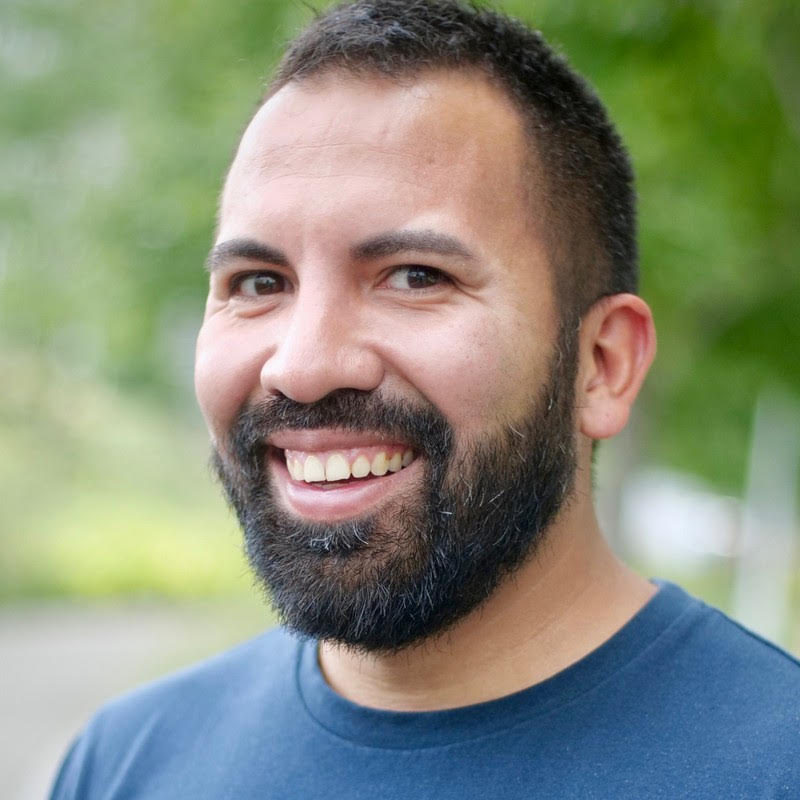 “NBC News is strengthening its regional news coverage by adding 4 digital reporters to cover portions of the South and Midwest,” A.J. Katz reported Oct. 12 for TVNewser. “These are the first hires under the regional reporting initiative announced by NBC News Group chairman Cesar Conde in July, and the network says there are more to come. All of the hires also happen to be journalists of color.” They are Deon Hampton, Bracey Harris, Elliott Ramos (pictured) and Jaquetta White.
“NBC News is strengthening its regional news coverage by adding 4 digital reporters to cover portions of the South and Midwest,” A.J. Katz reported Oct. 12 for TVNewser. “These are the first hires under the regional reporting initiative announced by NBC News Group chairman Cesar Conde in July, and the network says there are more to come. All of the hires also happen to be journalists of color.” They are Deon Hampton, Bracey Harris, Elliott Ramos (pictured) and Jaquetta White.
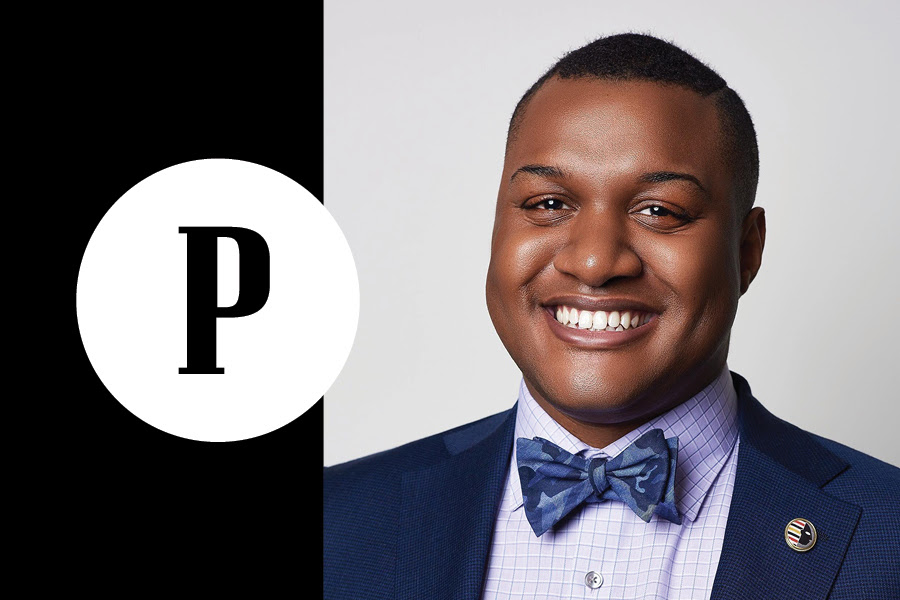 “Award-winning journalist Ernest Owens (pictured) has been named Philadelphia magazine’s newest editor at large, Metro Corp CEO Nick Fischer announced on Friday,” Philadelphia magazine reported. “Owens, 29, has covered Philadelphia’s political and community affairs for the past two years as writer at large, and the city’s LGBTQ community for three years prior as editor of G Philly, Philadelphia’s sunsetted LGBTQ channel.”
“Award-winning journalist Ernest Owens (pictured) has been named Philadelphia magazine’s newest editor at large, Metro Corp CEO Nick Fischer announced on Friday,” Philadelphia magazine reported. “Owens, 29, has covered Philadelphia’s political and community affairs for the past two years as writer at large, and the city’s LGBTQ community for three years prior as editor of G Philly, Philadelphia’s sunsetted LGBTQ channel.”
- “Black people say unconscious racial bias has been a major barrier in their lives, posing as much or more of a problem than structural racism and individual discrimination, according to a new poll by the Kaiser Family Foundation (KFF) and The Undefeated,” Jesse Washington reported for The Undefeated. The survey was conducted Aug. 20–Sept. 14.
- “A new nationwide poll by The Undefeated and the Kaiser Family Foundation (KFF) found that 7 in 10 African Americans believe that people are treated unfairly based on race or ethnicity when they seek medical care,” Michael A. Fletcher reported Tuesday for The Undefeated. Fletcher also wrote, “The poll, which included interviews with 777 African Americans, is the most comprehensive survey of Black attitudes and experiences with health care since the start of the pandemic. . . .”
 Zuri Berry (pictured), a senior managing editor at Washington NPR affiliate WAMU-FM, Thursday filed a $10 million defamation lawsuit against Current, the American University publication covering public broadcasting, over a story that reported that Berry is “being investigated as the subject of multiple complaints from staffers over 11 months, according to three employees who requested anonymity,” as Sasha Fernandez wrote July 20 for Current. In a suit filed in D.C. Superior Court on Thursday, the law office of David A. Branch and Associates, PLLC, called the publication negligent and said the article “was riddled with falsehoods, missed key context, and painted Mr. Berry in a false light.” Berry is on leave while the charges are investigated.
Zuri Berry (pictured), a senior managing editor at Washington NPR affiliate WAMU-FM, Thursday filed a $10 million defamation lawsuit against Current, the American University publication covering public broadcasting, over a story that reported that Berry is “being investigated as the subject of multiple complaints from staffers over 11 months, according to three employees who requested anonymity,” as Sasha Fernandez wrote July 20 for Current. In a suit filed in D.C. Superior Court on Thursday, the law office of David A. Branch and Associates, PLLC, called the publication negligent and said the article “was riddled with falsehoods, missed key context, and painted Mr. Berry in a false light.” Berry is on leave while the charges are investigated.
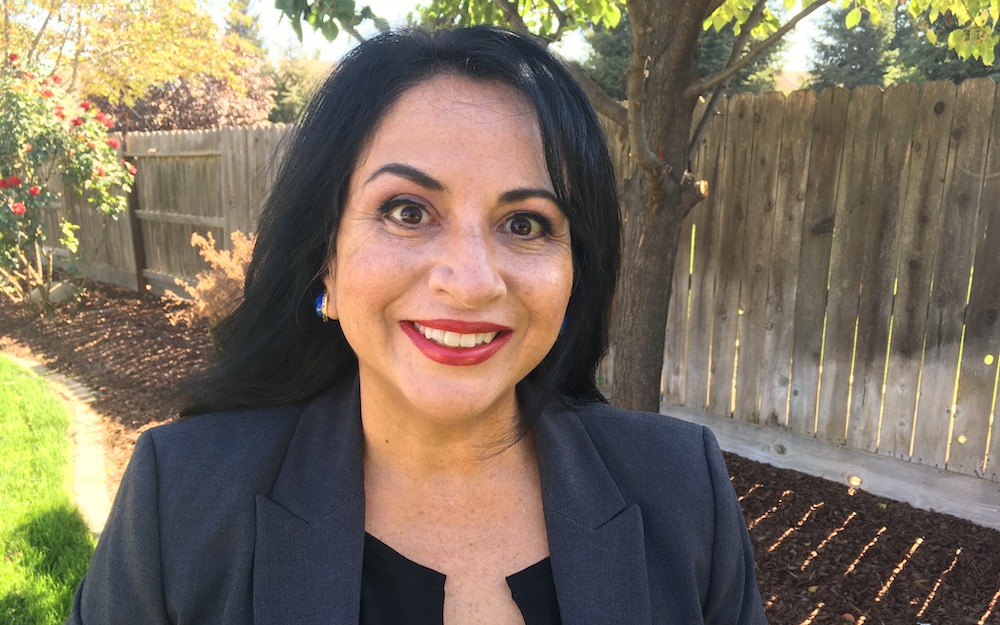 Veteran journalist Michelle Morgante (pictured), a former deputy managing editor for NPR who spent more than two decades with the Associated Press, is now membership director for the Institute for Nonprofit News, Veronica Villafañe reported Oct. 12 for her Media Moves site.
Veteran journalist Michelle Morgante (pictured), a former deputy managing editor for NPR who spent more than two decades with the Associated Press, is now membership director for the Institute for Nonprofit News, Veronica Villafañe reported Oct. 12 for her Media Moves site.
- The Alliance for Women in Media Foundation (AWMF) and ESPN announced a new joint student scholarship Oct. 12. “The mission of this partnership is to provide Black women a path into careers in sports media by assisting one female undergraduate student and one female graduate student in the United States, pursuing careers in sports media,” the groups said. The selection of the student winners will be based on applicants developing an essay of 750 to 1,000 words, highlighting the importance of Black women in sports media, the organizations said.
- Heshy Tischler, a New York City Council candidate charged with inciting an attack on a journalist, was released without bail on Oct. 12, Amanda Woods and Lia Eustachewich reported Wednesday for the New York Post. “He has since apologized for the offensive remarks and on Tuesday expressed regret for amping up a crowd — some of whose members assaulted” journalist Jacob Kornbluh. “ ‘Sometimes I lose it,’ Tischler told The Post hours after he was released from Brooklyn Criminal Court on misdemeanor charges for false imprisonment, inciting a riot, menacing and harassment.”
- “A Korean American reporter from New York City was called a racial [slur] while covering a story in Brooklyn on Tuesday,” Akemi Tamanaha reported Wednesday for AsAmNews. “CeFaan Kim, a reporter for ABC7NY, was working on a story about the opening of Jewish Hasidic schools in Brooklyn when he was called ‘ch*nky.’ The slur was caught on video but bleeped out when the story aired. In the video you can see a man approach Kim and his camera crew without a mask. . . . ‘Come here ch*nky, come here,’ the man says to Kim in the video. ‘Let me give you a little corona.’ “
 “This summer, journalist Alexis Johnson (pictured) made national headlines after management at the Pittsburgh Post-Gazette, where she worked, banned her from covering the ongoing anti-police brutality protests over the killings of George Floyd and Breonna Taylor,” Ryan Deto wrote Wednesday for Pittsburgh City Paper. “Today, she has announced her new position at Vice News.” She will be “a correspondent for their TV program Vice News Tonight, which airs Monday through Thursday on VICE TV, and also has a partnership with Showtime. She will be working with the DC bureau, but still based in Pittsburgh during the coronavirus pandemic.”
“This summer, journalist Alexis Johnson (pictured) made national headlines after management at the Pittsburgh Post-Gazette, where she worked, banned her from covering the ongoing anti-police brutality protests over the killings of George Floyd and Breonna Taylor,” Ryan Deto wrote Wednesday for Pittsburgh City Paper. “Today, she has announced her new position at Vice News.” She will be “a correspondent for their TV program Vice News Tonight, which airs Monday through Thursday on VICE TV, and also has a partnership with Showtime. She will be working with the DC bureau, but still based in Pittsburgh during the coronavirus pandemic.”
- In the Boston Police Department, “Black officers are more likely to face scrutiny for alleged misconduct and to receive harsher discipline than their white counterparts,” Andrew Ryan and Evan Allen reported Oct. 10 for the Boston Globe, citing “a first-of-its-kind analysis of a decade of police data conducted by the Globe.” They wrote, “White officers are much more likely to receive medals and special citations; they outnumber Black officers by 3 to 1, but, as a group, receive five times as many awards.”
- “Bon Appétit relaunched its YouTube channel Tuesday with a diverse slate of new chef-hosts after months of turmoil and the exit of numerous high-profile hosts of color over accusations of unequal pay and treatment,” Lindsey Ellefson reported Tuesday for The Wrap. Ellefson also wrote, “Priya Krishna, Sohla El-Waylly, and Rick Martinez were among the first high-profile hosts to leave the site’s Test Kitchen, announcing their departures in August weeks after Adam Rapoport stepped down as editor in chief of the Condé Nast brand after a photo surfaced of him in brownface. Bon Appétit offered a ‘long-overdue apology’ at the time for ‘the much broader and longstanding impact of racism at these brands.’ ”
- “Tasteavision Media Inc, a Los Angeles-based media company, has launched Taste On T.V. as a 24-hour all cooking and lifestyle channel dedicated to highlighting the voices, culture, and food of African-Americans and people of color in an honest and uncompromised manner,” Cuisine Noir magazine reported Sept 24.
- “Facebook Inc. will ban posts that deny the Holocaust in a reversal of a long-held and controversial policy,” Sarah Frier reported Oct. 12 for Bloomberg. She also wrote, “The new policy doesn’t apply to the denial of other genocides, such as the Armenian or Rwandan genocides — only the Holocaust, Facebook said.”
 Latino Journalists of California CCNMA has named Jennifer Medina (pictured) of the New York Times as “Latina Journalist of the year” and Los Angeles Times reporter Dorany Pineda as “Emerging Latina Journalist of the year.” The group also named the “2020 Most Influential Latina Journalists in California.”
Latino Journalists of California CCNMA has named Jennifer Medina (pictured) of the New York Times as “Latina Journalist of the year” and Los Angeles Times reporter Dorany Pineda as “Emerging Latina Journalist of the year.” The group also named the “2020 Most Influential Latina Journalists in California.”
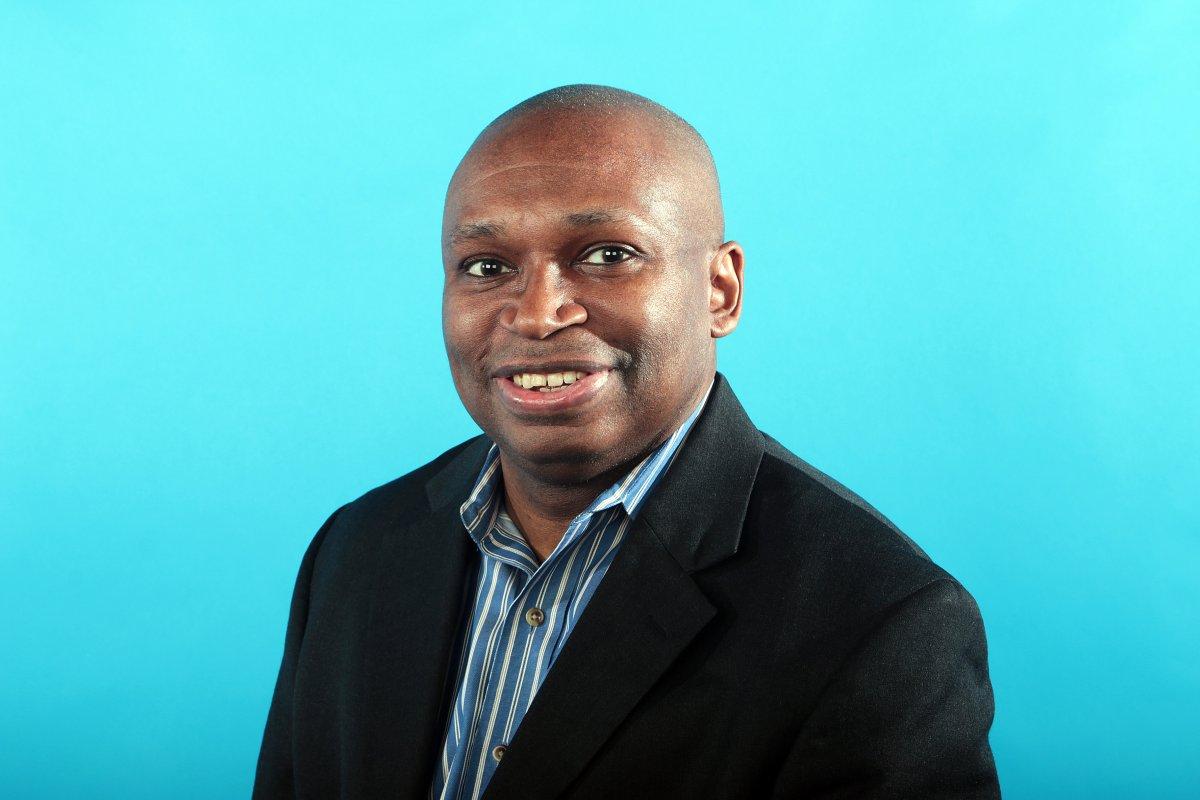 Robert A. George (pictured) has joined Bloomberg Opinion pages after 4 1/2 years at the Daily News in New York and 16 at the New York Post, George and his new boss, David J. Shipley, senior executive editor, tweeted Oct. 12.
Robert A. George (pictured) has joined Bloomberg Opinion pages after 4 1/2 years at the Daily News in New York and 16 at the New York Post, George and his new boss, David J. Shipley, senior executive editor, tweeted Oct. 12.
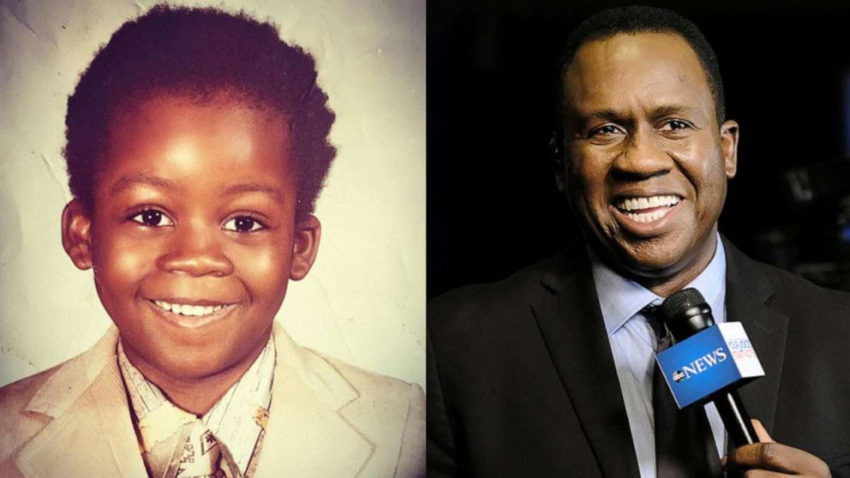
- “A new film examines the history of African Americans driving on the road from the Great Depression to the height of the Civil Rights movement,” Russell Contreras reported Wednesday for the Associated Press. ” ‘Driving While Black,’ which airs this week on most PBS stations in the U.S., shows how the automobile liberated African Americans to move around the country while still navigating segregation and violence. While the car allowed African Americans to avoid segregated trains and buses throughout the American South, it also put them in danger while traveling through towns across the U.S. that barred Blacks after dark.”
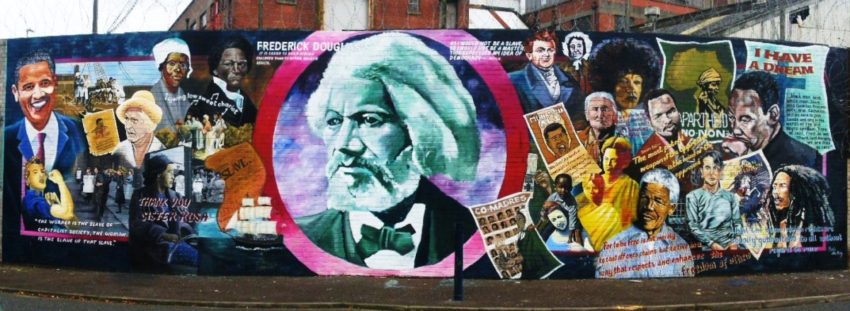
- “Ireland’s Department of Foreign Affairs has committed to cosponsoring the 2021 Frederick Douglass Global Fellows to commemorate the 175th anniversary of Frederick Douglass’s four-month long tour of Ireland, during which he addressed over forty abolitionist meetings across Dublin, Wexford, Waterford, Limerick, Cork, and Belfast,” the Council on International Educational Exchange, a nonprofit study abroad and intercultural exchange organization, announced Sept. 29. Georgetown University has posted a video of a discussion about the ties between Douglass, publisher of the abolitionist newspaper The North Star, and Ireland. Participants included the African American Irish Diaspora Network, which cites estimates that approximately 38 percent of African Americans have some Irish ancestry.
- “Just weeks into the debut of season two, Disney has renewed daytime talker Tamron Hall for a third season, said Karey Burke, president, ABC Entertainment,” Paige Albiniak reported for Broadcasting & Cable.
- “BIN: Black Information Network, the 24/7 comprehensive national audio news service . . . announced today that three well-respected media veterans have joined the network, effective immediately,” Radio Online reported Tuesday. “Emmy Award-winning journalist Ed Gordon will serve as an on-air anchor and correspondent, noted radio veteran Chris Thompson has been named Director of Network Operations and long-time iHeartMedia Chicago communications executive Angela Ingram will become Director of Local Advocacy and Engagement.”
- Neil Patel, co-founder and publisher of the conservative news outlet The Daily Caller is criticizing the Wauwatosa, Wis., police department after Patel said reporters Shelby Talcott and Richie McGinniss were beaten and detained by police on Thursday, Ricardo Torres reported Oct. 10 for the Milwaukee Journal Sentinel. “They were brutally beaten with clubs for no reason,” Patel said in a statement. “Our reporters have covered more protests and riots than anyone else in America. With the exception of Louisville, and now Wauwatosa, the police have understood that we have a job to do and let us do it.”
- “At City Bureau, we’ve begun to record what community healing looks like today in Chicago,” the news service reported. “We hope others will join us in documenting how Chicagoans connect with one another, to offer refuge, safety, solidarity, sustenance and joy in the midst of crises that threaten to keep us apart. If you know an individual or group who should be featured in this series, or if you want to contribute to this series, please let us know. . . . “
- “Writer and commentator Domonique Foxworth has signed a new multi-year extension with The Undefeated, ESPN’s content initiative exploring the intersection of sports, race and culture,” ESPN announced Oct. 8. “The former NFL player and NFL Players Association president will continue to contribute to The Undefeated and across ESPN platforms, including programs such as Get Up, First Take, Outside the Lines and Highly Questionable.”
- As paid newsletters grow in popularity, Snigdha Sur, the founder of South Asian-focused media company The Juggernaut, has no qualms about avoiding the approach entirely, Natasha Mascarenhas wrote Oct.12 for TechCrunch. In October 2017, Sur started The Juggernaut as a free newsletter, called InkMango. Mascarenhas also wrote, “The Juggernaut has worked with more than 100 contributors (both journalists and illustrators) to provide analysis on South Asian news. . . . On the heels of this growth, The Juggernaut announced today that it has raised a $2 million seed round led by Precursor Ventures to hire editors and a full-time growth engineer, and expand new editorial projects. . . . The Juggernaut is part of a growing number of media companies trying to directly monetize off of subscriptions instead of advertisements. . . .”
 “In the 16 months since Nayib Bukele (pictured) became president of El Salvador, hopes that he’d apply his youthful vigor to reducing corruption and restoring institutions have yielded to concerns over autocratic tendencies,” Michael D McDonald reported Oct. 6 for Bloomberg. “Last February, he marched soldiers into the legislature; in April he defied the supreme court. In recent weeks, focus has turned to attacks on journalists. He’s banned some reporters from news conferences. His government launched an audit of a respected news site, El Faro, that has reported on corruption in government contracts and suggested Bukele may have cut a secret deal with powerful street gangs to cut the murder rate.”
“In the 16 months since Nayib Bukele (pictured) became president of El Salvador, hopes that he’d apply his youthful vigor to reducing corruption and restoring institutions have yielded to concerns over autocratic tendencies,” Michael D McDonald reported Oct. 6 for Bloomberg. “Last February, he marched soldiers into the legislature; in April he defied the supreme court. In recent weeks, focus has turned to attacks on journalists. He’s banned some reporters from news conferences. His government launched an audit of a respected news site, El Faro, that has reported on corruption in government contracts and suggested Bukele may have cut a secret deal with powerful street gangs to cut the murder rate.”
To subscribe at no cost, please send an email to journal-isms-subscribe@yahoogroups.com and say who you are.
Facebook users: “Like” “Richard Prince’s Journal-isms” on Facebook.
Follow Richard Prince on Twitter @princeeditor
Richard Prince’s Journal-isms originates from Washington. It began in print before most of us knew what the internet was, and it would like to be referred to as a “column.” Any views expressed in the column are those of the person or organization quoted and not those of any other entity. Send tips, comments and concerns to Richard Prince at journal-isms-owner@yahoogroups.com
View previous columns (after Feb. 13, 2016).
- Diversity’s Greatest Hits, 2018 (Jan. 4, 2019)
- Book Notes: Is Taking a Knee Really All That? (Dec. 20, 2018)
- Book Notes: Challenging ’45’ and Proudly Telling the Story (Dec. 18, 2018)
- Book Notes: Get Down With the Legends! (Dec. 11, 2018)
- Journalist Richard Prince w/Joe Madison (Sirius XM, April 18, 2018) (podcast)
- Richard Prince (journalist) (Wikipedia entry)
- February 2018 Podcast: Richard “Dick” Prince on the need for newsroom diversity (Gabriel Greschler, Student Press Law Center, Feb. 26, 2018)
- Diversity’s Greatest Hits, 2017 — Where Will They Take Us in the Year Ahead?
- Book Notes: Best Sellers, Uncovered Treasures, Overlooked History (Dec. 19, 2017)
- An advocate for diversity in the media is still pressing for representation, (Courtland Milloy, Washington Post, Nov. 28, 2017)
- Morgan Global Journalism Review: Journal-isms Journeys On (Aug. 31, 2017)
- Diversity’s Greatest Hits, 2016
- Book Notes: 16 Writers Dish About ‘Chelle,’ the First Lady
- Book Notes: From Coretta to Barack, and in Search of the Godfather
- Journal-isms’ Richard Prince Wants Your Ideas (FishbowlDC, Feb. 26, 2016)
- “JOURNAL-ISMS” IS LATEST TO BEAR BRUNT OF INDUSTRY’S ECONOMIC WOES (Feb. 19, 2016)
- Richard Prince with Charlayne Hunter-Gault,“PBS NewsHour,” “What stagnant diversity means for America’s newsrooms” (Dec. 15, 2015)
- Book Notes: Journalists Follow Their Passions
- Book Notes: Journalists Who Rocked Their World
- Book Notes: Hands Up! Read This!
- Book Notes: New Cosby Bio Looks Like a Best-Seller
- Journo-diversity advocate turns attention to Ezra Klein project (Erik Wemple, Washington Post, March 5, 2014)
.

